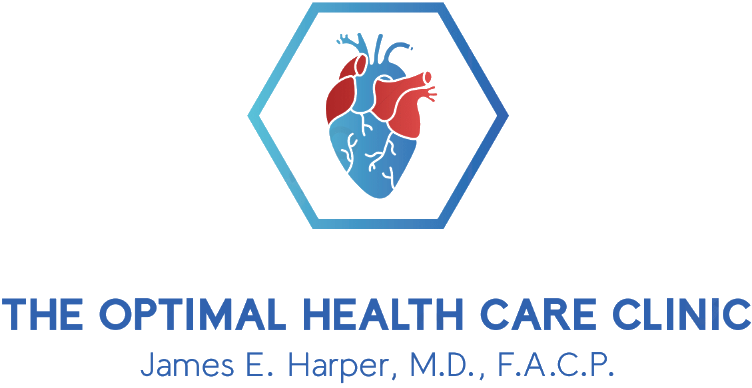An electrocardiogram, commonly referred to as an EKG or ECG, is a simple, non-invasive test that records the electrical activity of your heart. While the idea of undergoing heart testing might sound serious, an EKG is often a routine part of preventive care and can provide helpful insight into your overall heart health.
At The Optimal Health Care Clinic, EKGs are used thoughtfully and responsibly to support patients’ long-term wellness. Below, we explain when an EKG might be recommended, what the test involves, and how it can contribute to your overall care plan.
What Is an Electrocardiogram (EKG)?
An EKG measures the electrical signals that control your heart’s rhythm and beat. These signals travel through your heart muscle to keep it pumping in a coordinated, steady pattern.
The test itself is quick and painless. Small electrodes are placed on your chest, arms, and legs. These electrodes are connected to a machine that records the heart’s electrical activity as waves on a screen or paper. The entire process typically takes just a few minutes and requires no special preparation.
The results allow Dr. Harper to observe your heart rate, rhythm, and other patterns that may indicate how well your heart is functioning.
When Might an EKG Be Recommended?
An EKG can be ordered for a variety of reasons. Sometimes it’s part of a preventive check-up, and other times it may be used to explore specific symptoms. Common situations where your provider may recommend an EKG include:
- Unexplained chest discomfort
- Shortness of breath
- Dizziness or fainting episodes
- Irregular or fast heartbeat (palpitations)
- Fatigue not explained by other factors
- Preoperative evaluation before surgery
- Baseline health assessment for patients with high blood pressure, diabetes, or a family history of heart disease
Even if you’re not experiencing symptoms, an EKG can offer valuable information, especially if you have risk factors for heart conditions. For example, patients with elevated cholesterol or high blood pressure may benefit from early monitoring to detect subtle changes in heart function.
What Can an EKG Detect?
An EKG provides real-time insight into how your heart is working. It can help detect or rule out several potential concerns, such as:
- Irregular heart rhythms (arrhythmias). An EKG can reveal whether your heartbeat is too fast, too slow, or erratic.
- Previous or current heart attacks. Certain patterns on an EKG can indicate if you’ve had a heart attack in the past—even if you didn’t notice symptoms.
- Heart enlargement. The electrical signals can reflect changes in the size or thickness of the heart muscle.
- Circulation or oxygen flow issues. EKG results can suggest whether certain areas of the heart are not receiving enough oxygen.
It’s important to remember that an EKG is just one tool in a broader approach to heart health. An abnormal result doesn’t always mean something serious, and a normal result doesn’t automatically rule everything out. That’s why interpretation and follow-up with a skilled provider are key.
EKGs as Part of Preventive Care
At The Optimal Health Care Clinic, EKGs are sometimes incorporated into annual exams or preventive health plans. For patients with chronic conditions like hypertension or diabetes, or those over a certain age, an occasional EKG can help monitor heart health over time and establish a clear baseline.
Dr. Harper considers multiple factors before recommending any diagnostic test. With over 40 years of experience in internal medicine, his approach is focused on balancing thoroughness with good judgment. If an EKG is needed, it will be explained clearly and used as part of a thoughtful care plan.
What to Expect During Your Visit
If your provider recommends an EKG, there’s no need to worry. The test is quick, painless, and non-invasive. You’ll lie comfortably on an exam table while the technician attaches several small electrodes to your skin. The entire test typically takes about 10 minutes. Once complete, the results are reviewed and discussed with you directly.
There’s no recovery time or special instructions afterward. You can go right back to your normal activities.
Stay Updated on Your Heart Health in Georgia
Heart health isn’t something you only think about when symptoms appear. Preventive care, regular check-ups, and appropriate diagnostic tools like EKGs are all part of maintaining long-term wellness.
If you live in Johns Creek, Alpharetta, or Suwanee, and want to better understand your heart health or need a routine assessment, The Optimal Health Care Clinic is here to help. Call 770-538-1747 to schedule your visit today and take a proactive step toward lifelong well-being.

